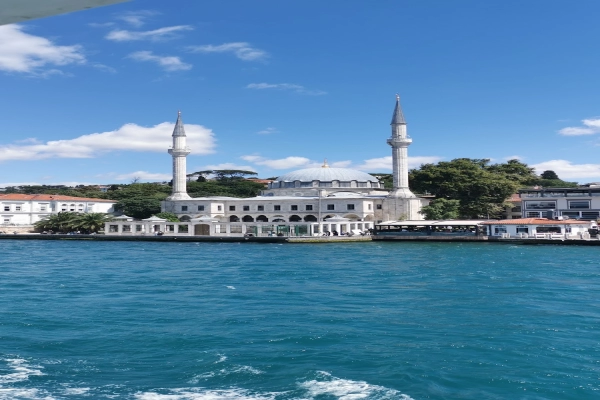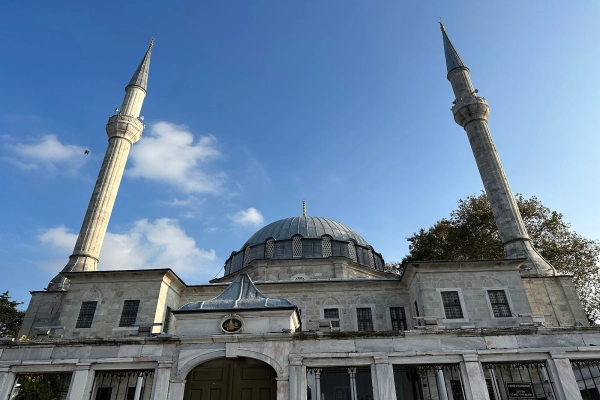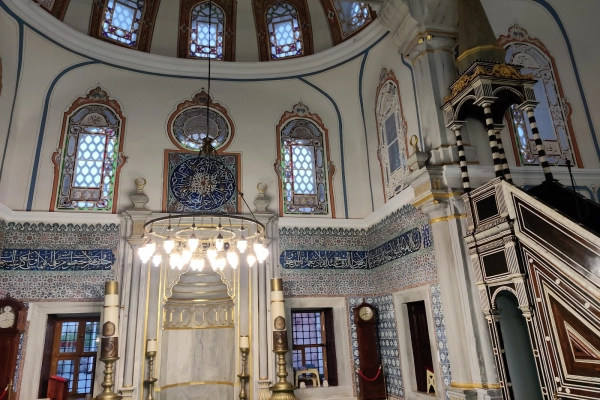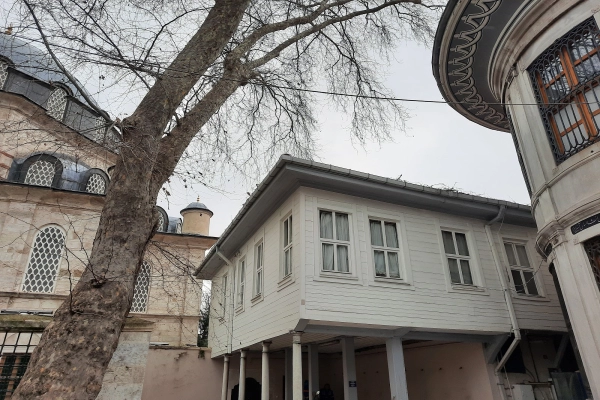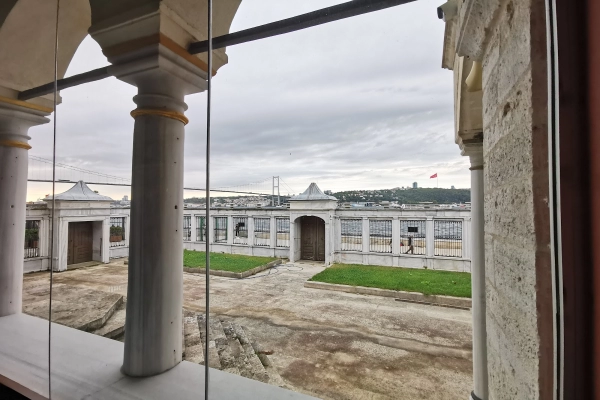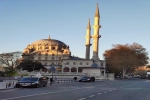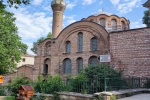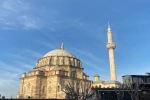Description
Beylerbeyi Mosque, also known as Hamid-i Evvel Mosque, is a historical mosque located in the Beylerbeyi district of Istanbul, dating back to the 18th century.
This magnificent structure was commissioned by Sultan Abdulhamid I in memory of his mother, Rabia Sermi Sultan, and was built on the site of the former Beylerbeyi Palace (Istavroz Palace), where the Hırka-i Şerif cell was located. The mosque was opened for worship on August 15, 1778, and is considered a natural extension of the complex built by the Sultan in the Bahçekap area.
While there are conflicting sources about the architect of the mosque, some indicate that the chief architect of the time, Mehmed Tahir Ağa, designed the mosque, while others suggest the architect remains unidentified.
Built in the Baroque style, the mosque is constructed with cut stone walls. The central single-domed mihrab is emphasized with a half-dome above an octagonal base. The main entrance is from the sea side, and in front of this entrance, which is currently unused, there is a mounting stone to facilitate the Sultan's dismounting from his horse. Eleven steps lead to the last prayer area, where a small room is located.
The interior walls of the mosque have 55 windows and are adorned with Ottoman and European tiles. Inscriptions of the "Beautiful Names of Allah," written in elegant calligraphy by Yesârîzâde, encircle the dome's base.
Due to the continuous impact of water flow on the mosque's floor, alterations were made shortly after its construction in 1810-1811 during the reign of Sultan Mahmud II. The location of the last prayer area was changed, the minaret was demolished, and two new minarets were added. Additionally, a timekeeper's room, a four-sided fountain on the seaside, and a chamber for the timekeeper were built south of the mosque. The building suffered significant damage in the 1894 earthquake but underwent a serious restoration in 1969.
On March 13, 1983, parts of the wooden section of the dome collapsed due to a fire in the adjacent Debreli Ismail Pasha mansion. However, it was swiftly restored by the General Directorate of Foundations and reopened for worship on May 29, 1983.
The restoration work initiated by the Foundations Directorate in 2013 has been completed, and the mosque is currently in use, serving the local community.

